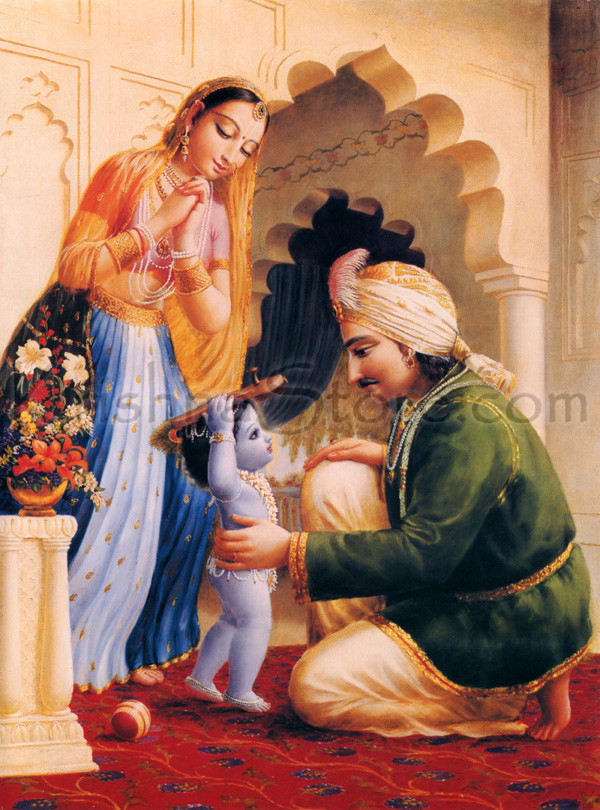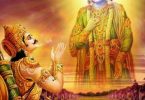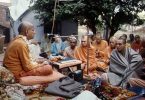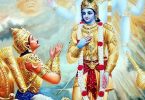Questions:
- Did Mother Yaśodā and Nanda Mahārāja realize that Kṛṣṇa was not their son and, if so, when?
- How do the gopīs and Mother Yaśodā respond to knowledge of Kṛṣṇa’s aiśvarya?
Answer by Romapada Swami to #1:
Rohiṇī and Devakī speaking with Queen Yaśodā at Kurukṣetra
37-38: [Rohiṇī and Devakī said:] What woman could forget the unceasing friendship you and Nanda have shown us, dear Queen of Vraja? There is no way to repay you in this world, even with the wealth of Indra. Before these two boys had ever seen Their real parents, you acted as Their parents and gave Them all affectionate care, training, nourishment and protection. They were never afraid, good lady, because you protected Them just as eyelids protect the eyes. Indeed, saintly persons like you never discriminate between outsiders and their own kin.
BBT PURPORT
As Śrīla Viśvanātha Cakravartī explains, Kṛṣṇa and Balarāma had not seen Their parents for two reasons: because of Their exile in Vraja, and also because They are never actually born and therefore have no parents.
Śrīla Viśvanātha Cakravartī also describes what Devakī thought before speaking this verse: “Alas, because for so long these two sons of mine had you, Yaśodā, as Their guardian and mother, and because They were immersed in such a vast ocean of ecstatic loving dealings with you, now that you are once more before Them They are too distracted to even notice me. Also, you are behaving as if insane and blind with love for Them, showing millions of times more maternal affection than I possess. Thus you simply keep staring at us, your friends, without recognizing us. So let me bring you back to reality on the pretext of some affectionate words.”
Then, when Devakī failed to get any response from Yaśodā even after addressing her, Rohiṇī said, “My dear Devakī, it’s impossible just now to rouse her out of this ecstatic trance. We are crying in the wilderness, and her two sons are no less bound up in the ropes of affection for her than she is for Them. So let us now go outside to meet with Pṛthā, Draupadī and the others.”
Summary: Yaśodā never states or thinks, “Kṛṣṇa is not my son.” (see below). Further, it’s not possible for Nanda and Yaśodā to realize that Kṛṣṇa is not their son, because Kṛṣṇa is factually their eternal son. (See additional references at the very bottom, in RED letters.)
- The answer to Question #2 is found below.
““`
Additional answers can also be found in the excerpts below.
“Rāga-vartma-candrikā: The hidden path of devotion” – Srila Vishvanath Chakravarti; HH Bhanu Swami’s translation.
““`
Though one may understand that Kṛṣṇa is the Supreme Lord, when that realization produces increased steadiness in one’s particular bhava–and the realization does not produce a trace of respect which generates disturbance in the heart, it is called knowledge of Kṛṣṇa’s sweetness.
Location 309
Śrīdama, Subala and other boys remain steady in their bhāva though they see all the devatās and sages like Nārada praising Kṛṣṇa with songs and music, and offering respect at his feet while offering gifts. Hearing about this, the gopīs remain steady in their mādhurya-bhāva. Yaśodā shows not a trace of decrease in her vātsalya, being consoled by the words of Nanda. Rather her affection for her son became stronger, for joyfully she thought, “It is fortunate that the Lord is my son.” Similarly in the material world, a mother’s love for her son remains strong, though he is master of the earth. The cowherd boys think, “We are fortunate that the Lord is our friend.” The gopīs strengthen their love, thinking, “We are fortunate that the Lord is our lover.”
Moreover, on meeting Kṛṣṇa, no awareness of his powers manifests, because meeting creates coolness, like the light of the moon. In separation, awareness of his powers appears because that generates heat, like the light of the sun. However, if there is no trembling of the heart or great reverence and respect, it cannot be called knowledge of his powers (aiśvarya-jñānam).
Location 323
“Like a hunter, he cruelly shot the king of the monkeys with arrows. Because he was conquered by a woman, he disfigured another woman who came to him with lusty desires. And even after consuming the gifts of Bali Mahārāja, he bound him up with ropes as if he were a crow. So let us give up all friendship with this dark-complexioned boy, even if we can’t give up talking about him.” SB 10.47.17
Before he lifted Govardhana, the people of Vraja were not aware that Kṛṣṇa was the Supreme Lord. After lifting Govardhana and going to Varuṇa’s planet they realized Kṛṣṇa is the Lord. However, realization of his sweetness remained full, as explained above.
Location 333
Though they became aware of his powers through the words of Varuṇa and Uddhava, Yaśodā never states or thinks, “Kṛṣṇa is not my son.” Vasudeva however says this with yuvān na naḥ sutau: you two are not our sons. Thus the people of Vraja always have pure mādhurya-jñānam or knowledge of his sweetness to the fullest extent. The people of Dvārakā however have mādhurya-jñānam mixed with aiśvarya-jñanam to the fullest extent.
Location 334
Just as avidyā, the function of māyā, covers the knowledge of the jīva in order that he experience suffering in saṁsāra, and just as yoga-māyā, a function of the cit śakti, covers the knowledge of Yaśodā and others, who are associates of Kṛṣṇa, though they are beyond the guṇas, in order that they experience the happiness of his sweet pastimes, so prema, the essence of the cit śakti, covers Kṛṣṇa’s knowledge so that he can experience the greatest bliss, which is his very svarūpa.
Location 353
““`
1.
In commenting on the Srimad-Bhagavatam (10.3.47), Prabhupada writes in the purport:
Śrīla Viśvanātha Cakravartī Ṭhākura discusses that Kṛṣṇa appeared simultaneously as the son of Devakī and as the son of Yaśodā, along with the spiritual energy Yoga-māyā. As the son of Devakī, He first appeared as Viṣṇu, and because Vasudeva was not in the position of pure affection for Kṛṣṇa, Vasudeva worshiped his son as Lord Viṣṇu. Yaśodā, however, pleased her son Kṛṣṇa without understanding His Godhood.
2.
CC Antya 1.67, Krishna das Kaviraj writes:
“The Kṛṣṇa known as Yadu-kumāra is Vāsudeva Kṛṣṇa. He is different from the Kṛṣṇa who is the son of Nanda Mahārāja. Yadu-kumāra Kṛṣṇa manifests His pastimes in the cities of Mathurā and Dvārakā, but Kṛṣṇa the son of Nanda Mahārāja never at any time leaves Vṛndāvana.”
Purport
This verse is included in the Laghu-bhāgavatāmṛta (1.5.461), by Śrīla Rūpa Gosvāmī.
3.
Rupa Goswami, in his Sri Laghu-bhagavatamrita (1.5.452–456), writes:
To give pleasure to His loving associates and even to relish His own wonderful pastimes, Sri Krishna manifested in Vraja [Vrindavan]. Because the parental love of Nanda and Yashoda is without parallel, Lord Krishna eternally thinks Himself their son. In ancient times, devotees revealed that the Lord appeared in His Vasudeva expansion in the home of King Vasudeva, and at the same time He appeared in His original form in the village of Vraja. It was thus said that Sri Krishna and Yogamaya were the twin children of Yashoda in Vrajabhumi. When Maharaja Vasudeva arrived there, he entered Yashoda’s maternity room, seeing only Yashoda’s daughter. The Vasudeva expansion that King Vasudeva had brought with him from Mathura entered the body of the original Sri Krishna, who had just taken birth as the son of Yashoda. In this way the two forms of Vasudeva and Krishna became one. Because this pastime is very confidential, it is not conveyed in Srimad-Bhagavatam and other texts. Nevertheless, Shukadeva Goswami and other great devotees have indirectly described it in their writings.







